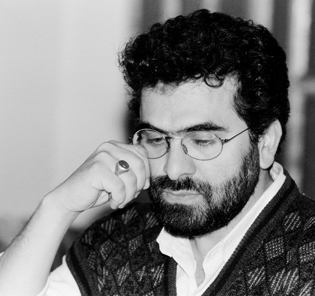|
Post-election developments in Iranian Cinema:
Toward a Confidence-Building Policy
by Mehrzad Danesh
|
Although Mahmoud Ahmadinejad was proclaimed the winner of the tenth presidential polls for a second term, he has shown no interest in keeping his former ministers. During election campaigns in a televised debate when his main rival, Mir-Hossein Mousavi, criticized his cultural policies, this was the only weakness in his government to which he admitted. That night, he announced that he was going to make changes in cultural fields. Even then, one could have presumed that if he were reelected, one of his first priorities would be to change cultural officials. Before he was sworn in as president, Ahmadinejad removed his culture minister, Hossein Saffar Harandi, from office. Although he was deposed for mostly political reasons, it was evident that more changes were to come. In four years of Harandi’s tenure, he failed to build confidence with artists most of whom supported Ahmadinejad’s election rival. Among the artists, filmmakers enjoyed a special position. So, it seemed that cinema was in for serious changes and this is what actually happened. Mohammad Hosseini, the new minister of Islamic culture and guidance, was more of an academic figure and not known to cultural circles. Shortly after getting Majlis’ vote of confidence, he appointed Javad Shameqdari, a former arts adviser to President Ahmadinejad, as his deputy for cinema affairs.
Revolutionary Filmmaker
The 50-year-old Shameqdari is well-known to Iranian filmmakers as he is also a filmmaker. At the beginning of Iranian Revolution, he supported the “Cultural Revolution.” After beginning of Iran-Iraq War, he dropped out of a mechanical engineering course of Iran University of Science and Technology (the same University Ahmadinejad had graduated from) and went to warfronts. During the war, he made documentary films about war for the state television. Then he worked with some revolutionary cultural organizations and got a diploma in filmmaking. After Ayatollah Khomeini's death, he made a documentary called Sun and Love which made him famous. But his first feature, On the Wings of Angels (1992), also a war film, was a tribute to martyrs and won Fajr Festival’s best prize for a first feature. As the first film of its director, it was also acclaimed by some critics. His second film, Sandstorm (1996), was not as good as the first. It was the failed US military assault in Tabas Desert, east Iran, in 1980. Some foreign media found it an interesting film.
During presidential campaigns in 1996, Shameqdari had supported Khatami's rival. After the victory of Khatami, Shameqdari withdrew from cinema and continued his limited activities in television. He had claimed years ago that during Khatami's two terms, he was banned from filmmaking because he openly criticized his government. Shameqdari is a main member and a founder of the Islamic Artists Society. The society believes in Islamic revolutionary values and supports the Supreme Leader. Shameqdari, like many other members of this society, believed that the government of Khatami did not care for the Islamic values. He used every opportunity to criticize government’s decisions, especially cultural ones. When reformists were in power, he frequently attached their policies including favoritism by House of Cinema, promotion of capitalism in Iranian cinema, attacking the foundations of religion in films, and US support for some Iranian films which were screened in foreign festivals.
SUBSCRIBE
[Page: 20]
|
|
|
|
|
President & Publisher
Massoud Mehrabi
Editors:
Sohrab Soori
Translators:
Sohrab Soori
Behrouz Tourani
Zohreh Khatibi
Saeed Khamoush
Contributors
Saeed Ghotbizadeh
Mehrzad Danesh
Advertisements
Mohammad Mohammadian
Art Director
Babak Kassiri
Ad Designers
Amir Kheirandish
Hossein Kheirandish
Cover Design
Alireza Amakchi
Correspondents
E.Emrani & M. Behraznia (Germany)
Mohammad Haghighat (France)
A. Movahed & M. Amini (Italy)
Robert Richter (Switzerland)
F. Shafaghi (Canada)
B. Pakzad (UAE)
H. Rasti (Japan)
Print Supervisors
Shad-Rang
Noghreh-Abi
Gol-Naghsh
Subscription & Advertising Sales
Address: 10, Sam St., Hafez Ave., TEHRAN, IRAN
Phone: +98 21 66722444
Fax: +98 21 66718871
info@film-magazine.com
Copyright: Film International
© All rights reserved,
2023, Film International
Quarterly Magazine (ISSN 1021-6510)
Editorial Office: 5th Floor, No. 12
Sam St., Hafez Ave., Tehran 11389, Iran
*
All articles represent views of their
authors and not necessarily
those of the editors
|
|
|

